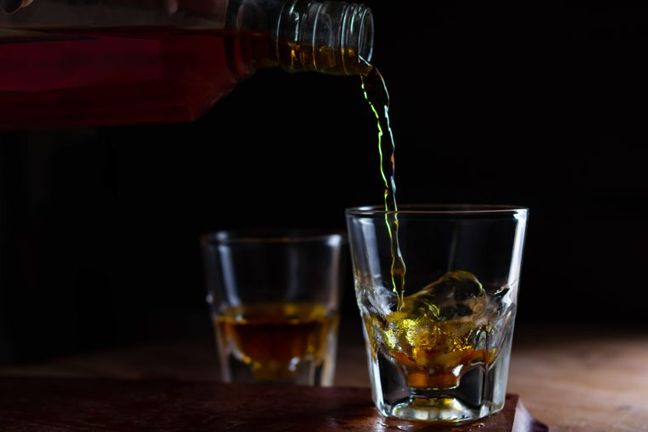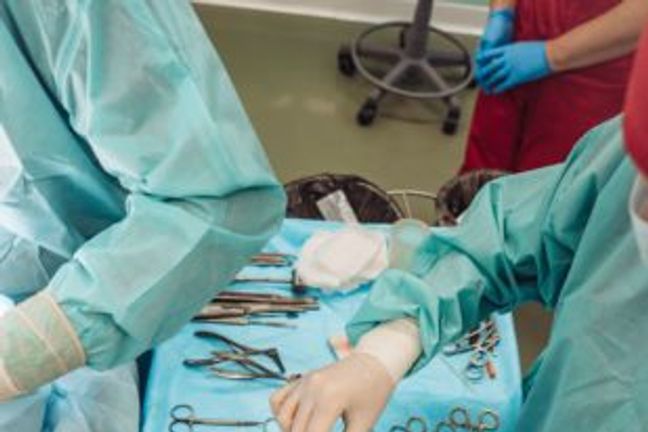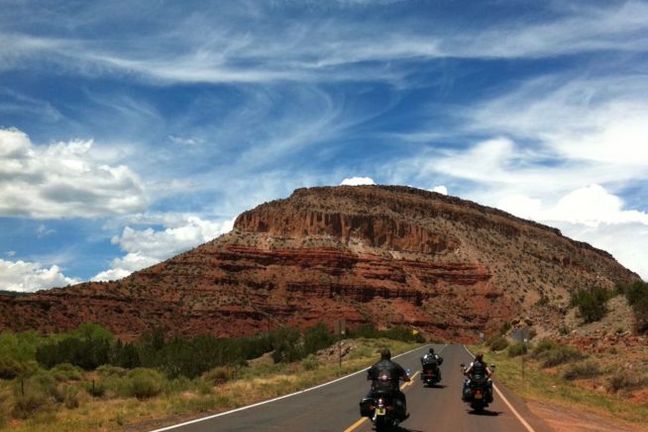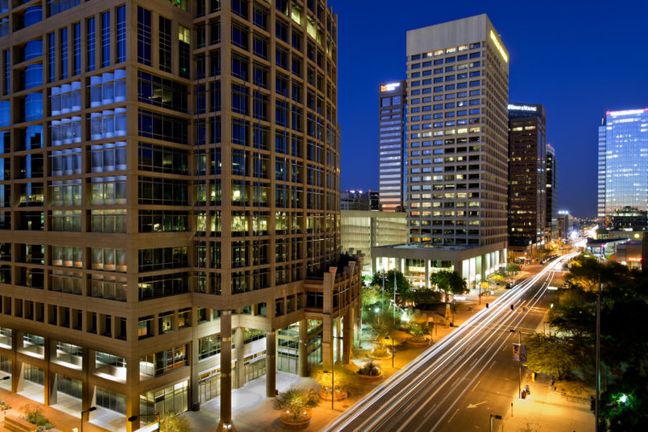The Arizona Supreme Court recently determined the scope of a liquor licensees’ liability in a dram shop case. In Roberto Torres, et al v. JAI Dining Services (Phoenix) Inc., the Court reviewed whether an overserved patron’s decision to drive while intoxicated after safely reaching home or a similar resting place constituted an intervening and superseding cause that would break the chain of causation as a matter of law, thus relieving the defendant liquor licensee of liability. The Court found the patron’s actions were not an intervening and superseding cause and, therefore, the issue was properly submitted to the jury to decide.[i]
Background
On November 7, 2015, Cesar Aguilera Villanueva (“Villanueva”) was a patron at Jaguars Club, a strip club owned by defendant JAI Dining Services (Phoenix) Inc. (“JAI”) in Phoenix, Arizona. Pursuant to the record, Villanueva had spent the evening at a wedding reception until approximately 9:00 p.m., where he ate tacos and consumed beer. He then went home to shower and change prior to heading to JAI. On the way to JAI, he purchased and consumed a 24-ounce container of beer. He did not appear visibly intoxicated, but then ordered another 12-ounce beer from JAI and then a “mega bucket” of beer with two other gentlemen, which contained 15 beers. Villanueva consumed approximately six or seven beers at JAI and did not display obvious signs of intoxication.
At approximately 2:30 a.m., Villanueva was involved in a dispute with an employee at JAI. Villanueva and his group were then escorted outside the club, and he drove away. Villanueva drove to his brother’s residence, where he stayed for more than an hour to “chill out for a little bit and sober up.”[ii] Around 4:00 a.m., a friend used Villanueva’s vehicle to drive Villanueva, his girlfriend, and her friend to Villanueva’s house and drop off the truck. Villanueva slept for a short time after returning home. Villanueva’s friend then drove Villanueva’s truck to her house while Villanueva slept in the backseat and once Villanueva’s friend reached home, Villanueva resumed driving. Just after 5:00 a.m., Villanueva was involved in a motor vehicle accident with Guadalupe Gastelum Suarez (“Suarez”) and Jesus O. Torres Guillen (“Guillen”), killing them. Villanueva was convicted of two counts of manslaughter.
Trial Court
The families of Suarez and Guillen sued Villanueva and JAI. The families alleged JAI was negligent for overserving alcohol to Villanueva. JAI moved for summary judgment, arguing Villanueva’s decision to drive again after arriving home was an intervening and superseding cause of Suarez’s and Guillen’s deaths as a matter of law, thereby relieving JAI of liability.
The trial court instructed the jury on intervening and superseding cause. The jury returned a verdict in plaintiffs’ favor on their common law negligence (against Villanueva and JAI) and dram shop liability claim (against JAI) but found in JAI’s favor on the statutory negligence per se claim. The jury awarded plaintiffs $2,000,000 and apportioned 60% liability to Villanueva and 40% liability to JAI.
Appellate Court
The appellate court reversed the judgment against JAI finding the trial court erred by not entering judgment in JAI’s favor as a matter of law. The appellate court determined the risk created by a liquor licensee overserving a patron is that the patron “may be unable to return to his or her home other place or repose safely.”[iii] Thus, once Villanueva safely returned home, went to bed, and fallen asleep, with no reason to leave, his unilateral decision to leave and drive his truck was an intervening and superseding cause which broke the chain of proximate causation. The appellate court reasoned this was no different than if he had become intoxicated at home with alcohol purchased at a grocery store.[iv]
Arizona Supreme Court’s Analysis
The Arizona Supreme Court then reviewed the trial court’s ruling on whether JAI was entitled to judgment as a matter of law.
To recover on common law negligence and dram shop claims, plaintiffs were required to “prove a duty requiring [JAI] to conform to a standard of care, breach of that duty, a causal connection between breach and injury, and resulting damages.”[v] JAI had a duty to exercise due care in serving alcohol to Villanueva to protect members of the public from being injured due to his intoxication.[vi] However, the concern was whether JAI’s breach of that duty was causally connected with Suarez and Guillen’s deaths.
Plaintiffs proved causation if they showed both actual cause and proximate cause, which are ordinarily questions of fact for a jury. Actual cause is shown if the tortfeasor’s acts helped cause the final result, even if only a little. However, the primary issue here was whether Suarez’s and Guillen’s deaths would not have occurred “but for” JAI’s acts, or proximate cause.
Proximate cause exists if JAI’s actions produced Suarez’s and Guillen’s deaths in a natural and continues sequence, unbroken by any efficient intervening cause.[vii] An intervening cause is an independent cause that occurs between a defendant’s negligent conduct and the final harm and is necessary in bringing about that harm.[viii] It becomes a superseding cause, which relieves the original negligent actor from liability, when “an intervening act of another was unforeseeable by a reasonable person in the position of the original actor and when, looking backward, after the event, the intervening act appears extraordinary.”[ix] JAI did not dispute actual cause, but argued Suarez and Guillen failed to prove proximate cause. JAI argued Villanueva’s decision to resume driving while intoxicated after arriving home and falling asleep was an intervening and superseding cause that broke the natural sequence of events occurring after the club overserved him.
Plaintiffs, however, argued the risk Villanueva would cause an accident while driving exists as long as the patron drives while intoxicated, regardless of any transitory stop at home.
The Court reasoned the foreseeable risk that an intoxicated patron might drive and cause an accident that injures or kills someone does not vanish solely because the patron initially returns home with the intent to sleep, eat, change clothes, or do myriad other things before deciding to leave home and resume driving. Intoxicated people frequently make foolhardy decisions, including refusing to stay put and sober up before getting behind the wheel. Thus, the Court agreed the risk created by a liquor licensee overserving a patron exists as long as the patron drives while intoxicated, regardless of when or where the patron travels and even with a short stop at home.
Takeaway
The holding in this case does not mean liability will always be found against an alcohol licensee. If a patron sobers after drinking, the risk of liability ends. Further, there are extraordinary situations when an establishment takes actions to ensure a patron returns home safely without a vehicle and only due to the patron’s act as a superseding cause will it relieve the liquor licensee from liability.[x]
In any dram shop case, it is especially prudent to determine the facts of each case to determine if there would be a potential intervening and superseding cause. The sooner this information is identified, the sooner it will allow for a possible dispositive motion and possibly early resolution.
[i] Torres v. Jai Dining Services (Phoenix) Inc., CV-20-0294-PR, 2021 WL 5070068, (Ariz. Nov. 2, 2021).
[ii] Id. at 1.
[iii] Id. at 2, citing Torres v. JAI Dining Servs. (Phx.) Inc., 250 Ariz. 147, 149 ¶ 2, 476 P.3d 327, 329 (App. 2020).
[iv] Id. at 2, citing Torres v. JAI Dining Servs. (Phx.) Inc., 250 Ariz. 147, 149 ¶ 2, 476 P.3d 327, 329 (App. 2020).
[v] Ryan v. Napier, 245 Ariz. 54, 59 (2018).
[vi] Ontiveros v. Borak, 136 Ariz. 500, 511 (1983).
[vii] Robertson v. Sixpence Inns of Am., Inc., 163 Ariz. 539, 546 (1990); Ontiveros, 136 Ariz. At 505-06; Dupray v. JAI Dining Servs. (Phx.), Inc., 245 Ariz. 578, 584.
[viii] Robertson, 163 Ariz. at 546.
[ix] Ontiveros, 136 Ariz. at 506; Robertson, 163 Ariz. at 546; Rossell v. Volkswagen of Am., 147 Ariz. 160, 169 (1985).
[x] . See, e.g., Patterson v. Thunder Pass, Inc., 214 Ariz. 435, 440 (App. 2007) (holding that after a tavern employee took an intoxicated patron home and left her car in the tavern parking lot, the patron’s decision to walk back to retrieve her car and then drive was unforeseeable and extraordinary and therefore a superseding cause as a matter of law).

 Author: James Brewer
Author: James Brewer
 Editor: Grace Shuman
Editor: Grace Shuman
 Cannabis Workers Allege Quota to Trim 4 Pounds a Day Violates the California Labor Code
Cannabis Workers Allege Quota to Trim 4 Pounds a Day Violates the California Labor Code
 The Ninth Circuit Reminds Us: Every Word Matters
The Ninth Circuit Reminds Us: Every Word Matters
 NO WAY, PRO SE! The Consequences of Abusing the Judicial System as a Pro Se Litigant in Colorado
NO WAY, PRO SE! The Consequences of Abusing the Judicial System as a Pro Se Litigant in Colorado
 Victim of Financial Mismanagement or Unlawful Retaliation? New Jersey City University Program Founder Claims School Retaliated After Reporting Alleged Sexual Harassment
Victim of Financial Mismanagement or Unlawful Retaliation? New Jersey City University Program Founder Claims School Retaliated After Reporting Alleged Sexual Harassment
 “Real Housewives” Gets a Reality Check
“Real Housewives” Gets a Reality Check
 Missing a Chapter: Insufficiency of Expert Deposition Testimony in Medical Malpractice Litigation
Missing a Chapter: Insufficiency of Expert Deposition Testimony in Medical Malpractice Litigation
 Crash Course: Why Summary Judgment Misses the Mark in Illinois Multi-Cause Limousine Crash Collision
Crash Course: Why Summary Judgment Misses the Mark in Illinois Multi-Cause Limousine Crash Collision
 Bitter Truths: Lead, Cadmium, and Defective Pleadings in California Chocolate Class Action
Bitter Truths: Lead, Cadmium, and Defective Pleadings in California Chocolate Class Action
 The Law of Unintended Consequences: Including Insurance Brokers in Litigation Strategy Communication May Waive the Attorney-Client Privilege
The Law of Unintended Consequences: Including Insurance Brokers in Litigation Strategy Communication May Waive the Attorney-Client Privilege
 From New York to Arizona: Where in the World is There Jurisdiction?
From New York to Arizona: Where in the World is There Jurisdiction?
 Does Apparent Agency Apply to Contract Physicians in Arizona?
Does Apparent Agency Apply to Contract Physicians in Arizona?
 Issue Preclusion Saves the Day: Arizona Plaintiffs Cannot Relitigate on Same Facts
Issue Preclusion Saves the Day: Arizona Plaintiffs Cannot Relitigate on Same Facts
 New Case Narrows Arizona School District Liability
New Case Narrows Arizona School District Liability
 Arizona Appellate Court Confirms Application for Default Must Put Attorney on Notice
Arizona Appellate Court Confirms Application for Default Must Put Attorney on Notice